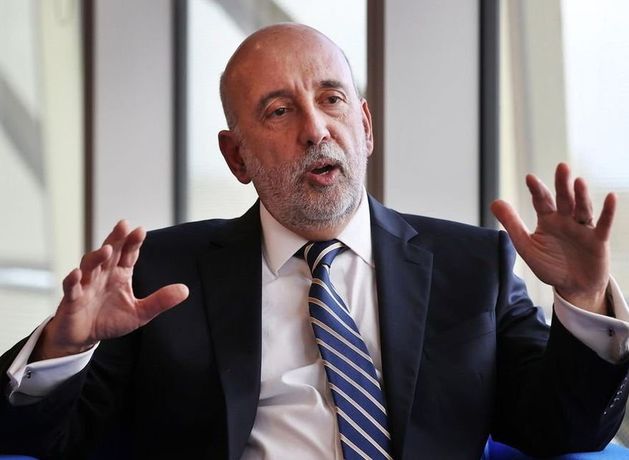The US President’s wave of tariffs have so far proved less disruptive than expected, the IMF said on Tuesday, but it cautioned the trade barriers still pose risks.
The impact has been lessened by the failure of blocs like the EU to retaliate and masked by a boom – potentially reaching bubble levels – in Artificial Intelligence technology investments, it said.
Meanwhile, the Governor of the Central Bank of Ireland warned separately that US tariffs of 15pc will reduce exports to that market and slow growth here.
“The new agreement between the EU and US, although yet to be fully implemented, is expected to moderately reduce Irish growth in the medium-to-long run, driven by activity in MNE-dominated sectors, particularly pharmaceuticals and chemicals,” Gabriel Makhlouf said in a speech to the Atlantic Council in Washington DC as part of ‘IMF week’.
The current tariffs could lead to reduction of around 1pc in Irish economic output relative to a no-tariff scenario over the long-term, he said.
“While economic outlook for Ireland is not as favourable as it would have been had tariffs not been introduced, the effective tariff rates now in place covering EU-US trade are not prohibitive to trade,” he said.
Central Bank of Ireland has forecasts a slowdown from 2.9pc growth this year to just over 2pc in the coming years.
Meanwhile, in its report the IMF said the US economy will expand 2pc in 2025.
That is slightly higher than the 1.9pc forecast in July. The US should grow 2.1pc next year, marginally better than the previous projection, the IMF said. The global economy will grow 3.2pc this year, slowing to 3.1pc in 2026, according to the IMF’s World Economic Outlook..
The numbers are more or less in line with forecasts before Donald Trump took office and before he announced sweeping tariffs, which continue to be rolled out in a series of stop-start announcements. The IMF had cut growth estimates but is now lifting them back to pre-tariff levels.
Economies have performed better than expected but it is too soon to say they are fully in the clear, the IMF said. IMF chief economist Pierre-Olivier Gourinchas said tariffs have created ongoing uncertainty. “The tariff shock is here, and it is further dimming already weak growth prospects,” he said.
However, the impact is less than feared.
“First and foremost, the tariff shock itself is smaller than initially feared, with many trade deals and exemptions,” he said.
“Most countries also refrained from retaliation, keeping the trading system open. And the private sector also proved agile, front-loading imports and re-routing supply chains.” A massive wave of investment in artificial intelligence (AI), including building vast data centres and funding microchip plants, offset the trade hit, he said.
That AI boom is stoking new boom-and-bust risks, he warned.
“There are echoes in the current tech investment surge of the dot-com boom of the late 1990s,” he said.

